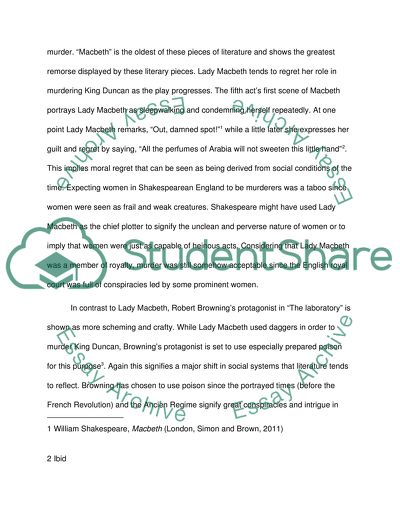Cite this document
(“How women's strong feelings can lead to violence in 'Macbeth', Coursework”, n.d.)
Retrieved from https://studentshare.org/literature/1458424-how-womens-strong-feelings-can-lead-to-violence-in-macbeth-salome-and-the-laboratory
Retrieved from https://studentshare.org/literature/1458424-how-womens-strong-feelings-can-lead-to-violence-in-macbeth-salome-and-the-laboratory
(How women'S Strong Feelings Can Lead to Violence in 'Macbeth', Coursework)
https://studentshare.org/literature/1458424-how-womens-strong-feelings-can-lead-to-violence-in-macbeth-salome-and-the-laboratory.
https://studentshare.org/literature/1458424-how-womens-strong-feelings-can-lead-to-violence-in-macbeth-salome-and-the-laboratory.
“How women'S Strong Feelings Can Lead to Violence in 'Macbeth', Coursework”, n.d. https://studentshare.org/literature/1458424-how-womens-strong-feelings-can-lead-to-violence-in-macbeth-salome-and-the-laboratory.


